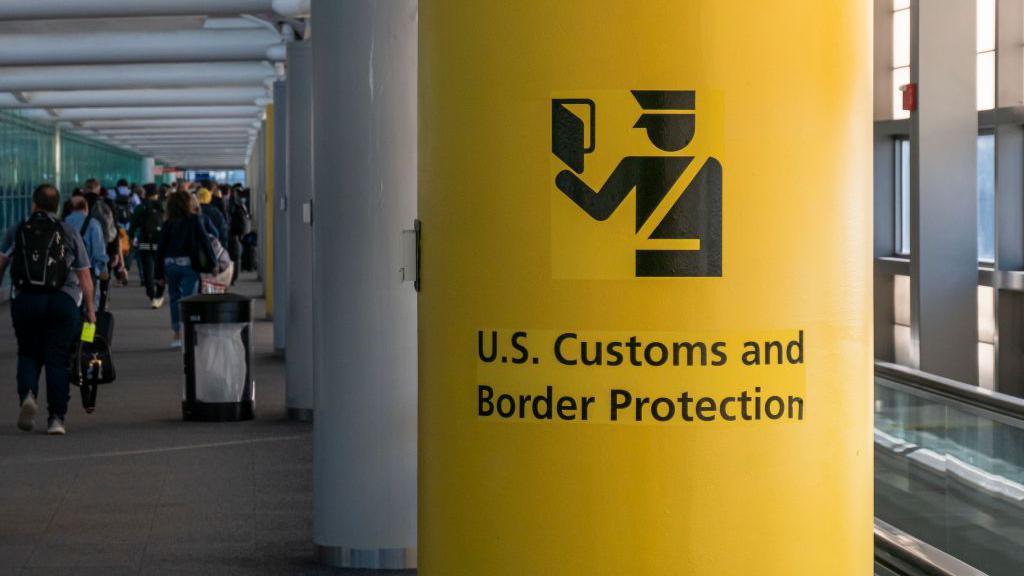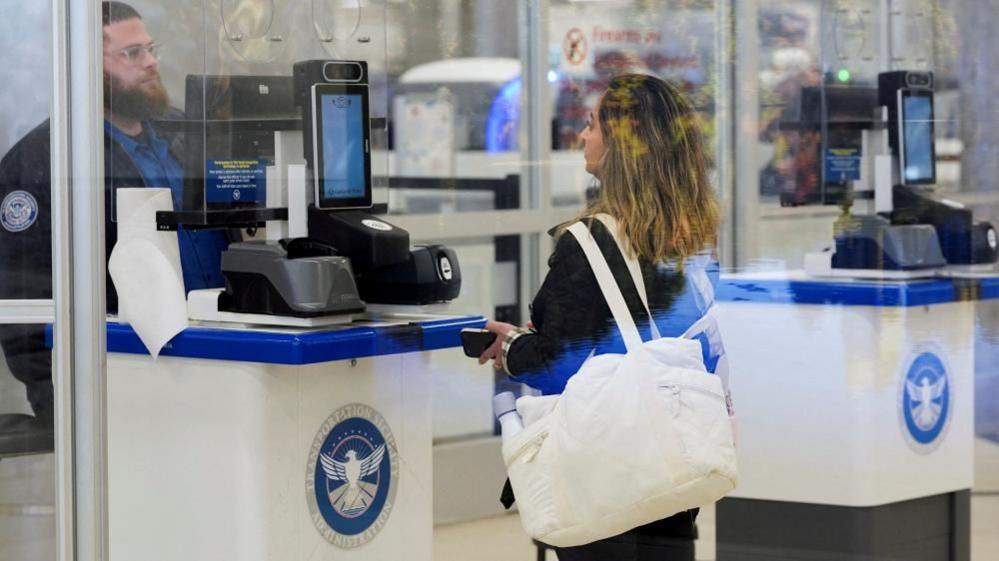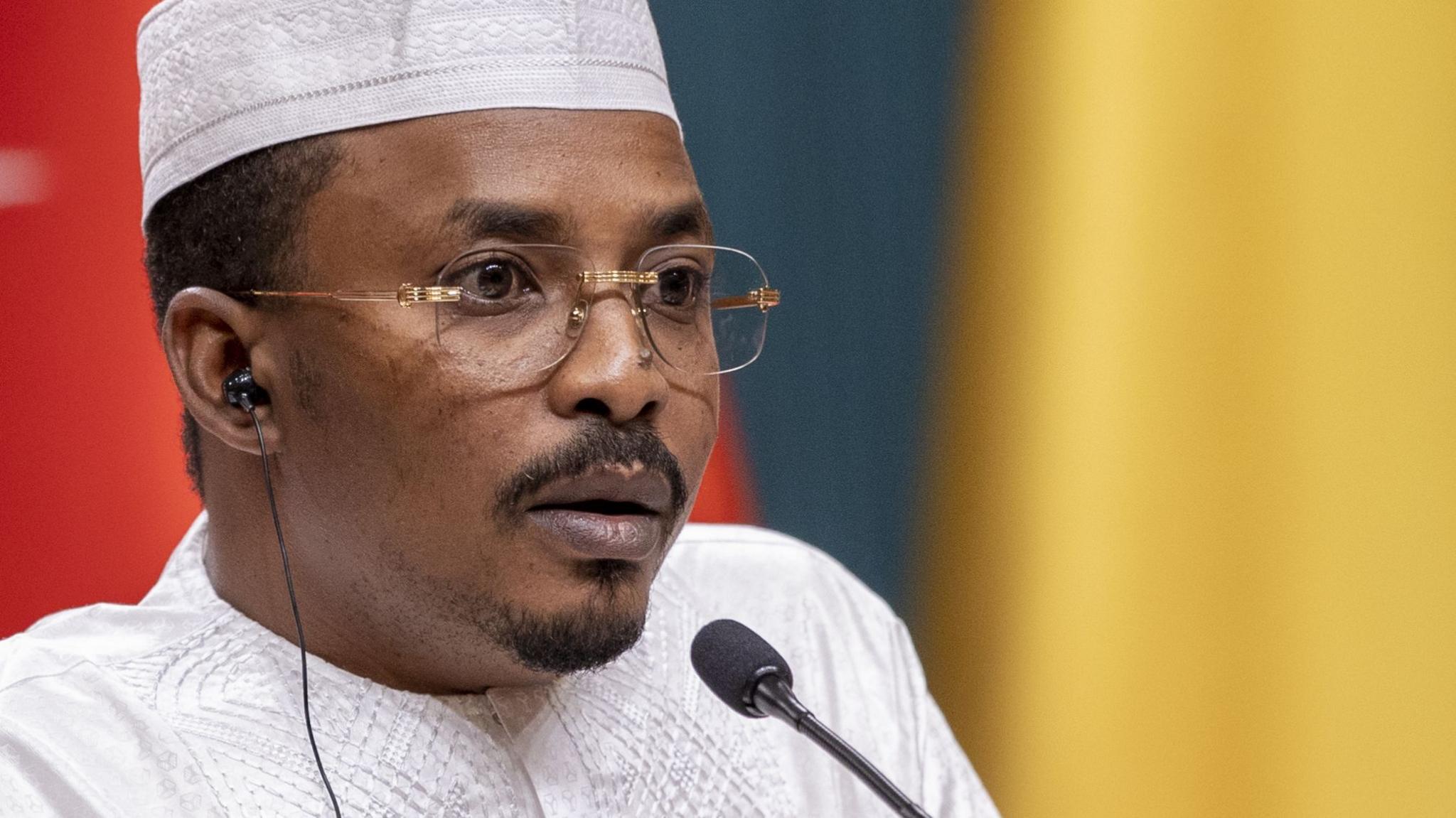How countries responded to Trump's travel ban

- Published
US President Donald Trump has signed a proclamation banning travel to the US from nationals of 12 countries, which goes into effect on 9 June.
The countries listed are Afghanistan, Myanmar, Chad, Congo-Brazzaville, Equatorial Guinea, Eritrea, Haiti, Iran, Libya, Somalia, Sudan, and Yemen.
Nationals from a further seven countries - Burundi, Cuba, Laos, Sierra Leone, Togo, Turkmenistan and Venezuela - will face partial travel restrictions.
So far, only the African Union, which represents all 55 nations on the African continent, Chad, Somalia and Venezuela have responded. Here is what they said.
Chad President Mahamat Déby said he has told his government to "act in accordance with the principles of reciprocity" and has suspended issuing visas to US citizens.
"Chad has no planes to offer, no billions of dollars to give but Chad has its dignity and pride," he said in a statement.
Somalia, whose nationals are banned, had a different response and made an immediate promise to work with the US to address security issues.
Somali ambassador to the US, Dahir Hassan Abdi, said: "Somalia values its longstanding relationship with the United States and stands ready to engage in dialogue to address the concerns raised."
Meanwhile, African Union called on the US to "engage in constructive dialogue with the countries concerned".
In a statement, it appealed to the US to exercise its sovereign right to protect its borders and its citizens' security "in a manner that is balanced, evidence-based, and reflective of the long-standing partnership between the United States and Africa".
The union said it remains concerned about the "potential negative impact of such measures", and added that it "stands ready to support efforts that promote understanding, resolve concerns, and strengthen cooperation".
The ban has also drawn ire from Venezuela, whose Interior Minister Diosdado Cabello warned Venezuelans in the US.
"The truth is being in the United States is a big risk for anybody, not just for Venezuelans," he warned, adding that the US is governed by what he called "bad people - it's fascism, they are supremacists who think they own the world and persecute our people for no reason".
Venezuela is one of the seven countries listed with partial restrictions.
Since starting his second term, Trump has deported a number of Venezuelans alleged to be gang members to El Salvador.
Trump's proclamation stated that the list would be evaluated in three months time, and then every six months after that.
"The list is subject to revision based on whether material improvements are made, and likewise new countries can be added as threats emerge around the world," he explained on Truth Social.
In his video shared to the platform, he said: "We cannot have open migration from any country where we cannot safely and reliably vet and screen those who see to enter the United States."
As well as security risks, Trump's proclamation gave other reasons such as the listed countries having "taken advantage" of the US by exploiting its visa system, as well as nationals from certain countries, "pose significant risks" of overstaying their visas.
Related topics
- Published5 June

- Published5 June

- Published6 June

- Published5 June
